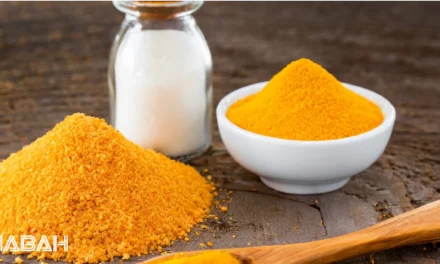As a food enthusiast and a firm believer in the importance of halal dietary choices, I embarked on a fascinating journey to uncover the halal status of Honey. In this comprehensive guide, I will delve into the intricacies of halal certification, the religious perspectives surrounding consuming Honey, and provide a definitive answer to whether Honey can be enjoyed with confidence by those adhering to halal principles.
How The Bee Makes Honey
Bees make honey by collecting flower nectar, which they store inside the honeycomb. The nectar is broken down into simple sugars and then evaporated by the bees’ wings, creating sweet liquid honey
Here is a step-by-step process of how bees make honey:
- Bees leave their hives in search of flowers when the weather gets warmer and flowers start to bloom
- Once they find a flower, they use their long tongue like a straw to suck nectar, a sugary juice, out of the plant
- The nectar is stored in the bee’s honey stomach, where it is broken down into simple sugars
- The bees return to the hive and regurgitate the nectar into the honeycomb
- The bees fan their wings over the honeycomb to evaporate the water content of the nectar, creating sweet liquid honey
- Once the honey has dried out, the bees put a lid over the honey cell using fresh beeswax, creating a little honey jar
- When the nectar’s moisture content is reduced from 70 percent to about 20 percent, the bees cap the cells with beeswax, and it is called honey
-
The color and flavor of honey vary based on the nectar collected by the bees. For example, honey made from orange blossom nectar might be light in color, whereas honey from avocado or wildflowers might have a dark amber color
Tracing the Halal Integrity of Honey
Halal is an Arabic word meaning “permissible” or “lawful” in Islam. When it comes to food and drinks, halal refers to items that adhere to Islamic guidelines as prescribed in the Qur’an. For a food product to be certified halal, it must comply with the following requirements:
- Does not contain anything considered haram or prohibited according to Islamic law
- Prepared, processed, and manufactured using equipment that has been cleansed according to halal standards
- Contains no blood or blood by-products
- Does not contain alcohol or other intoxicants
Honey is considered a pure and natural food in Islam. However, there is some debate around whether honey requires halal certification or is considered halal by default. Proponents argue that certification ensures proper production and avoids cross-contamination.
“Muslims’ only issue with halal certification is exploitation of Muslims by making them pay for certification for every product, even honey produced by Muslims without any certification payment.”
According to Islamic dietary laws, honey is one of five pure foods Muslims are allowed to consume. The others being meat, fish, milk and vegetables. Despite this, halal certification allows honey producers to export their products to Muslim-majority countries.
Some key points on honey and halal certification:
- Honey is considered intrinsically halal, but certification provides assurance
- Provides access to Muslim markets which require halal certification
- Standards avoid non-halal ingredients and cross-contamination
- Not all Muslims agree certification is necessary for pure foods like honey
In the following sections, we will explore the certification process, benefits and criticisms of halal honey in more detail.
Halal Honey Certification
For honey to be certified halal, it must comply with guidelines set by halal certification bodies. The main aspects are:
-
Source of honey – Must be from flowering plants and nectar, not fed sugar or honey derivatives. Cannot originate from non-halal sources.
-
Beekeeping practices – No contamination or contact with haram substances like alcohol used in some beekeeping.
-
Processing and handling – Equipment must be cleaned per halal standards. No contact or mixing with non-halal products.
-
Traceability – Clear record-keeping of the honey’s origins and processing methods.
-
Testing – Laboratory analysis to detect any non-halal substances.
“Halal certification of honey is carried out by the analysis of the entire process from beekeeping to packaging and labelling.”
The major steps in halal honey certification include:
-
Application by honey producer/supplier
-
Audit of production facility, process, and documentation
-
Sample testing to verify halal integrity
-
Evaluation by halal certification body
-
Certificate issued if requirements are met
-
Ongoing inspections for continued compliance
There are costs associated with certification, such as application fees, audits, and laboratory analyses. These are borne by the honey producers or suppliers.
Benefits of Halal Honey
Halal certification of honey provides several advantages:
-
Access to Muslim markets – Allows export to countries requiring halal certification like Malaysia, Saudi Arabia, UAE.
“Halal certification opens doors for New Zealand honey producers to export their products to Muslim countries.”
-
Peace of mind for consumers – Muslims can be assured certified honey meets Islamic dietary requirements.
“Halal certification gives Muslims confidence that the honey has been ethically sourced.”
-
Industry standard – Uniform certification standards instead of different rules in different countries.
“Halal certification aims to harmonise standards and simplify export requirements.”
-
Product integrity – Certification verifies honey’s purity from contamination/non-halal substances.
-
Consumer base – Helps producers/suppliers appeal to Muslim consumer segment.
So while honey is considered intrinsically halal, certification provides additional benefits and assurance. It signifies compliance with Islamic principles during production and processing.
Criticisms and Controversies
While halal certification of honey has its benefits, there are also some drawbacks and debates:
-
Necessity – Some argue honey is intrinsically halal, so certification is excessive.
“Honey is considered halal by default…Islam exempts honey from the need for halal certification.”
-
Cost burden – Smaller producers may struggle with the expenses of certification.
“The main controversy is the cost incurred by honey producers to get halal certification.”
-
Credibility of certifiers – Concerns over legitimacy of some halal certification bodies.
“There have been instances of certifiers not following proper protocols.”
-
Consumer confusion – Uncertified honey assumed to be non-halal, but some argue it is still permissible.
“Lack of certification does not necessarily mean honey is non-halal.”
So while certification has benefits, there are fair criticisms regarding its necessity, affordability and consistency across the halal honey industry.
Perspectives on Uncertified Honey
There are diverging views within the Muslim community regarding uncertified honey:
-
Intrinsically halal – Honey is considered pure, so no certification is needed.
“Muslims believe honey is halal by default based on teachings of Prophet Muhammad (pbuh).”
-
Caution recommended – Uncertified honey may carry risks of contamination.
“Without certification, traceability is a concern as non-halal substances could be introduced.”
-
Personal interpretation – Individual Muslims may decide for themselves whether uncertified honey is acceptable.
“Some Muslims use their own judgement instead of certification to determine if honey is halal.”
-
Avoidance by some – Lack of certification makes some Muslims unwilling to consume honey.
“Many Muslims abstain from non-certified honey out of caution.”
So perspectives on uncertified honey range from it being acceptable to requiring certification. There is no consensus, and Muslims follow personal interpretations of halal principles.
Is Honey Halal – Frequently Asked Question
What is honey?
Honey is a natural product produced by bees from the nectar of flowers. It is a sweet and viscous fluid commonly used as a food and sweetener.
What does it mean for honey to be halal?
Halal refers to anything that is permissible or lawful according to Islamic principles. So, to determine if honey is halal, we need to consider its production process and ingredients.
Is honey considered halal?
Yes, honey is considered halal in Islam. It is a natural product and does not have any specific restrictions unless it is contaminated with haram (forbidden) substances.
Are there any specific requirements for honey to be considered halal?
In general, honey is halal by default unless it includes specific haram ingredients or is contaminated with haram substances. It should also meet the general requirements of halal food, such as not being produced using alcohol or animal-derived ingredients.
Is there any alcohol present in honey?
No, honey does not contain alcohol. Honey is produced by bees, and it does not go through a fermentation process that would result in the formation of alcohol.
How can I ensure the honey I consume is halal?
To ensure the honey you consume is halal, you should look for halal-certified or reputable brands that provide clear labeling and mention the halal status of their products. Avoid any honey that contains haram ingredients or is produced using non-halal processes.
Can I consume any type of honey?
In general, all types of honey, including raw honey, can be consumed as long as they meet the halal requirements. However, it is always a good idea to check the labeling and certification to ensure the honey is halal.
What are the benefits of consuming honey?
Honey is known for its various health benefits. It is a rich source of antioxidants, can help soothe coughs and sore throats, boost the immune system, and provide natural energy. However, it is important to consume honey in moderation as it is still a sweetener.
Is honey halal for all Muslims?
Yes, honey is halal for all Muslims unless it contains haram ingredients or is produced using non-halal processes. Muslims can consume honey without any concerns
Conclusion
In summary, halal certification of honey provides benefits but also faces criticisms:
- Honey was decreed intrinsically halal by Prophet Muhammad (pbuh) but certification gives added assurance.
- The process verifies compliance with Islamic law in production and handling.
- Certification grants access to Muslim markets but costs burden smaller producers.
- It aids integrity but questions over necessity and credibility of certifiers persist.
- Uncertified honey may be halally compliant according to some Muslims but uncertified to others.
Perspectives among Muslims differ on the need for certification of pure honeys like honey. There is also debate around uncertified honey being halal. Muslim consumers make personal decisions based on their interpretation of principles.
Looking ahead, halal certification will remain important for allowing honey trade with Muslim nations. But affordability, over-certification and consistency issues need to be addressed through reforms. More education on halal honey and self-regulation could be a future direction.
“The halal honey industry needs a balanced approach between certification and intrinsic purity of honey according to Islam.”
In conclusion, halal honey certification has advantages but also raises questions requiring further discussion in the Muslim community.





